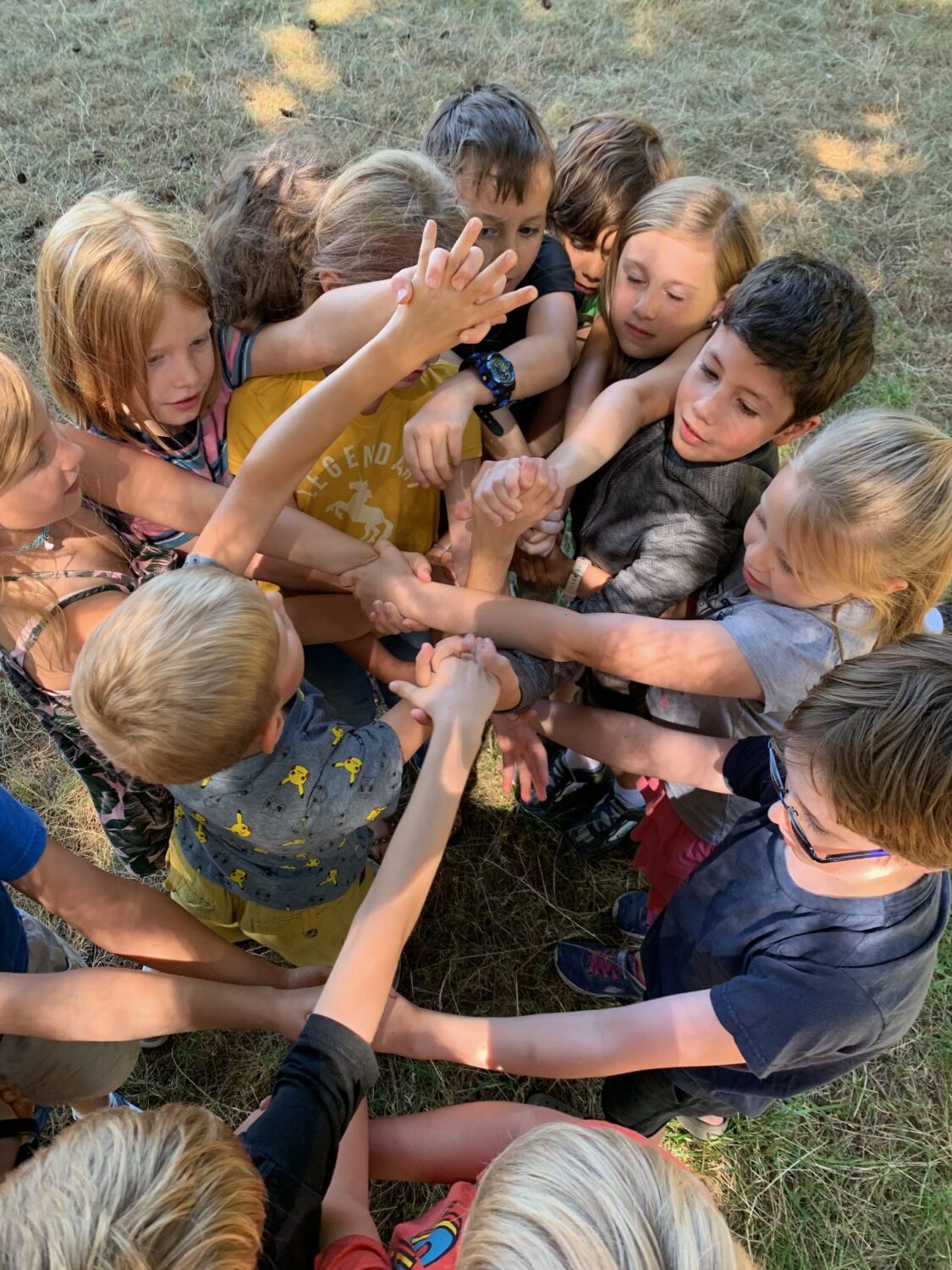Human Knots and Tangles

The Sitka Community’s year started in a unique position: all of the students and the teacher had a history of being together. Although this group knew each other well, I wondered:
How will we make space for each of us to continue to grow and evolve our stories of who we are?
How could we start the year demonstrating that we still have more to uncover about one another?
In what ways have we changed? How do we want to reinvent parts of ourselves?
In the first week, I introduced a common game with special attention to the Intermediate Community’s focus on taking perspective and thinking interdependently. We played a game called Human Knot — where you start in a circle and grab two different people’s hands across the circle. The object is to untangle the knot without letting go.
In playing this game, I saw an opportunity to invite conflict and “knots” in a playful way that would be a reflection of the complexity of “untangling knots” in our lives. I wondered if this game would create a metaphor for shared language as we moved into the year together.
After attempting the game several times, I asked the children to share a challenge they faced and how they overcame it.
Blanche My challenge was everyone was like, ‘You go under and you go over’ and no one really knew what to do. How I overcame it was stopping for a second and taking it slowly.
Alexandria People were pulling and pushing around. When we got really stuck, we brainstormed and thought about it.
Franklin We had a challenge but my group didn’t overcome it. I think it’s just up to luck.
September I disagree to Franklin’s idea because it’s not a luck game – it’s ideas and listening to other people. If you controlled everyone in your group, you would be the only one with ideas and you may never figure it out – but other people’s ideas could help.
Franklin Everyone was trying to share their ideas at once and were fighting. We need to figure it out.
Blanche I don’t remember it as we were all shouting out ideas. I remember as getting ideas out like popcorn. But, I see your problem: no one was listening. I understand. My brother never listens.
Ocean Adding on to Blanche, I don’t think everyone was shouting. I think they were speaking up, like September said, and trying to make people hear them.
Blanche Instead of telling everyone at once you could say [your idea] to one person that’s listening. Instead of going big, you could go small and start with one person to get their attention.
Neal I kind of agree with Franklin. If we just stayed calm from the beginning and take turns and listen to everybody instead of screaming we could have got it done way quicker.
September That is true what Neal said but I still think you could raise your voice a little so people could hear you and you could learn what happens so you know what to do next time.
Blanche I agree with Neal and Franklin and Nils. You should say one thing and wait a little if someone else has something to say and, instead of talk, let them finish… I get that if you’re playing something you want to finish and you get a lot of energy and you get ideas and want to shout out.
Franklin I think the strategies really matter with the people you’re with and some work with different types of people and how their brains work.
In this conversation, the children highlighted strategies for how to effectively communicate with one another. Their words suggested an understanding that problems arise in collaboration, that people have different needs, and that sometimes those differing needs conflict.
The children listened carefully to the experiences of other people in the group. They were able to agree and disagree with one another while giving space for different perspectives to be heard and coexist. They provided space to challenge each other’s ideas and allow those differences in perspective to shift their thinking. These habits are vital to a democratic society.
This playful experience provided us with a rich source of ideas and a metaphor for when we inevitably find ourselves in knots. As more opportunities to untangle our problems come up, I wonder:
How do you listen for understanding when perspectives collide?
How do people’s brains work differently? How can you find out what someone else needs? What could be the danger in making an assumption about someone else’s needs?
How does this new metaphor help us understand knots and tangles that exist in our world today and in the past?
How will this understanding inform our actions? How will our thinking continue to evolve as we approach different tangles?
